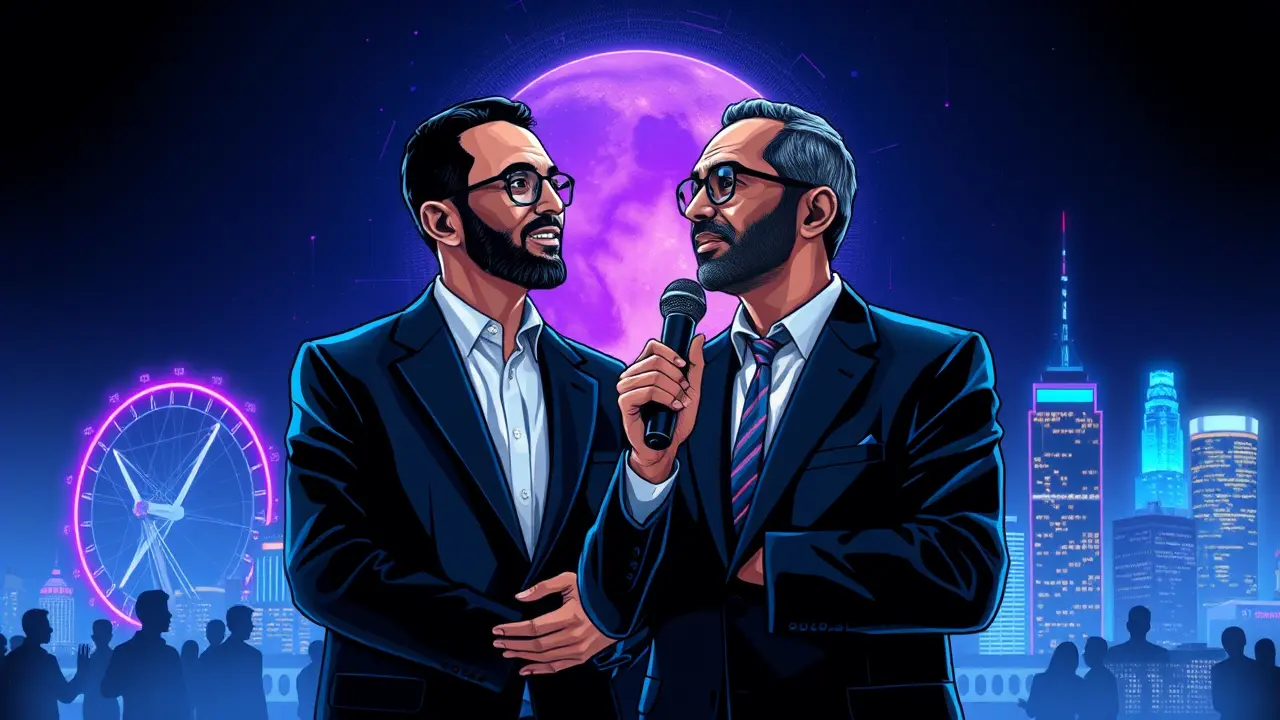- News
- governments-cabinets
- London mayor’s message for Zohran Mamdani: ‘In our cities, hope and unity will always triumph’

Politicsgovernments & cabinetsGovernment Formations
London mayor’s message for Zohran Mamdani: ‘In our cities, hope and unity will always triumph’
AN
Anna Wright
5 hours ago7 min read2 comments
As Zohran Mamdani, the soon-to-be first Muslim mayor of New York, navigated the final, frenetic days of his campaign in the bracing chill of his city, a political mirror was reflecting that same historic momentum thousands of miles away in a steamy, overcast Rio de Janeiro. There, Sadiq Khan, who himself shattered a ceiling as London’s first Muslim mayor, was concluding a two-day climate summit, his presence a testament to a globalized leadership that transcends borders and backgrounds.To the 300 city leaders gathered in the Brazilian city’s museum of modern art, Khan delivered a message that felt as much for Mamdani as it was for them: ‘Hope is not gone. ’ This was not merely a platitude but a core tenet of a shared political faith, a conviction that Khan later articulated with profound clarity: ‘We are united by something far more fundamental, our belief in the power of politics to change people’s lives for the better.’ This moment is more than a symbolic passing of the torch; it is a powerful narrative about the evolving face of representation in some of the world's most influential Western metropolises. The personal journeys of both men are inextricably linked to broader struggles against prejudice and institutional inertia.Khan’s tenure in London, marked by battles over housing, transport, and a relentless focus on social equity, has been a masterclass in navigating the treacherous waters of identity politics while delivering tangible results. His ability to wield the levers of City Hall, transforming policy into progress, provides a crucial blueprint for Mamdani, who enters office with a similarly ambitious, progressive mandate.The significance of a Muslim leader in New York, a city forever shaped by the aftermath of 9/11 and the subsequent, often-toxic political discourse around Islam, cannot be overstated. It represents a profound societal shift, a collective rejection of the politics of fear in favor of the politics of possibility.Mamdani’s impending administration will undoubtedly be scrutinized through a lens that Khan is all too familiar with—one that unfairly magnifies missteps and seeks to attribute them to his faith. Yet, as Khan’s experience demonstrates, this very scrutiny can forge a more resilient, more deliberate form of governance.The challenges ahead for Mamdani are monumental, from a housing affordability crisis that mirrors London’s to deep-seated inequalities laid bare by the pandemic. His success will hinge not just on bold policy proposals but on his capacity to build the kind of broad, multi-ethnic coalitions that have sustained Khan through multiple terms, coalitions built on that fundamental belief in politics as a force for good.This transatlantic connection underscores a new era of urban leadership, where mayors are becoming the primary actors in addressing global issues—from the climate crisis Khan was discussing in Rio to the social fractures both men have dedicated their careers to healing. Their shared identity is not a limitation but a unique source of strength, granting them an intimate understanding of the complex, intersecting identities that define their respective cities.In Khan’s steadfast message to Mamdani and the world, we see the emergence of a powerful counter-narrative to the rising tides of nationalism and division. It is a narrative that asserts, with quiet confidence, that in our great, diverse cities, hope and unity, forged in the fires of pragmatic governance and a deep-seated belief in human potential, will always triumph.
#featured
#Sadiq Khan
#Zohran Mamdani
#London mayor
#New York mayor
#Muslim politicians
#climate summit
#hope and unity
Stay Informed. Act Smarter.
Get weekly highlights, major headlines, and expert insights — then put your knowledge to work in our live prediction markets.
© 2025 Outpoll Service LTD. All rights reserved.